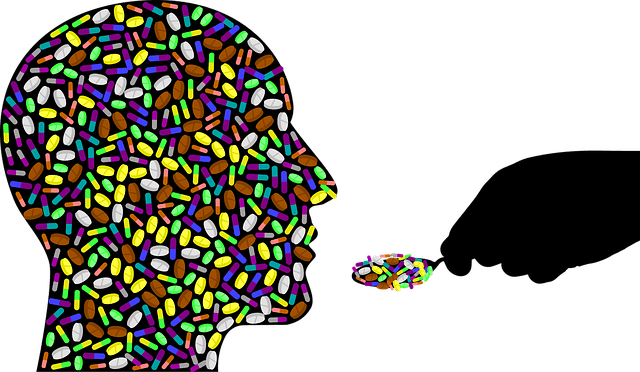The so-called PRISCUS list contains drugs that should be avoided, especially in older people. Unfortunately, this list is still known to few doctors; even worse: this list gets too little attention. In the following article I will go into the list and some basic problems of therapy with prescription drugs.
Let’s start with the “hard and bitter” facts:
Conventional medicine is the third leading cause of death, as I explained in a June 2019 post. The reasons for this fact are manifold. One reason may also be that misdiagnoses and the resulting wrong treatments or medications play an important role, especially in the treatment of seniors:
The last article from November 2010 contains, among other things, a link to a list, the “Priscus list”, of questionable drugs that should no longer be used in older patients if possible. This list was compiled by a team from the University of Witten-Herdecke led by Professor Petra Thürmann.
PIM – “Potentially Inappropriate Medication”
Although the Priscus list has been around since 2010, it seems that the medical community is either unaware of it or doctors don’t feel the need to take notice.
A report from Helsana[1] from the year 2020 said in a drug report that “Spitex” patients are exposed to great risks due to the multiple medications of PIM that are frequently used. “Spitex Switzerland” is the national umbrella organization of Spitex cantonal associations and other organizations for professional care and support at home.
According to a study[2] from 2014, around 20 percent of Swiss seniors were given a drug that, according to the list, is a PIM, i.e. an unsuitable drug.
This report from Switzerland should also be representative of the conventional medical approach in Germany. In 2016, for example, Barmer Krankenkasse reported that 25 percent of those over 64 had been prescribed a PIM at least once. And among the over 80-year-old women it was even 33 percent.
By the way: If you are interested in such information, then be sure to request my free practice newsletter:
According to the article from the “Ärzteblatt”[3] from the beginning of 2023, in 2009, 24 percent of the over 65-year-olds in Germany had received at least one PIM per year. In 2019 it was only 14.5 percent.
In addition to the pharmacological peculiarities of PIM, where each one alone is responsible for intolerance and side effects in the elderly, there are also the interactions of these substances with each other.
Because many seniors “need” more than just a drug, often a whole litany of pills for high blood pressure, diabetes, high blood fat levels, aspirin to “thin” the blood, etc. Here then further nasty surprises can wait:
The new Priscus list 2.0 has been available since the beginning of 2023.[4] In this list, 187 drugs for older people are now classified as PIM.
This list is intended to help doctors avoid medications that are unsuitable for seniors and look for alternatives. In most cases, the list itself lists a number of possible alternatives, some even natural products or products from natural medicine.
The new list also appears to be a bit more nuanced than its previous version. So there is no strict separation into PIM or non-PIM. Rather, a drug can only become a PIM after a certain period of ingestion. Example of gastric acid blockers: Here, taking more than eight weeks is not recommended = PIM.
Loperamide, a drug against diarrhea, becomes a PIM after just three days and a dosage of more than twelve milligrams per day.

Ibuprofen is a well-known and “popular” pain reliever. Here, too, the recommendations are now somewhat more differentiated:

The dosage should not exceed 400 milligrams three times a day. And the duration of therapy should be a maximum of one week. Everything beyond that counts as PIM again.
It is interesting that ginkgo[5] classified as a PIM. But the last word seems not to have been spoken here:

Natural substances that are recommended as alternatives for various indications are, for example, valerian, melatonin, etc.
The area of non-drug therapies, such as cognitive behavioral therapies for sleep disorders or relaxation exercises, etc., as a suitable alternative to the usual pharmaceuticals, has little entry into this list.
What to do if my drug is on this list?
Stopping medication initiated by your family doctor on your own authority is never a good idea. Because even stopping can be associated with side effects, some of which are considerable, as absurd as this may sound.
Especially after long-term therapy, suddenly stopping medication is associated with physiological reactions, since the organism has become accustomed to the medication and now has to adapt. There is often a so-called “rebound effect”, where exactly what the drug was previously able to suppress occurs more intensely.
For example, with blood pressure medication, an elevated blood pressure up to a hypertensive crisis. Or with gastric acid blockers an overproduction of gastric acid. Or with sleeping pills, insomnia or even withdrawal symptoms with hallucinations, convulsions, confusion, etc.
Therefore, it is more than advisable to stop or switch to another drug only in consultation with your doctor. This is because a switch takes a long time, sometimes even months, depending on the pharmacological properties of the substance in question.
By the way: If you are interested in such information, then you should definitely request my free practice newsletter “Independent. Naturally. clear edge.” to:
Sources:
This post was created on May 5th, 2023.
